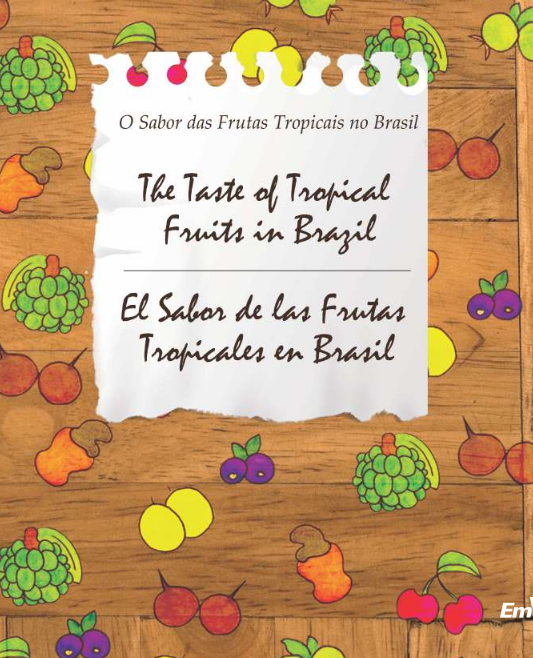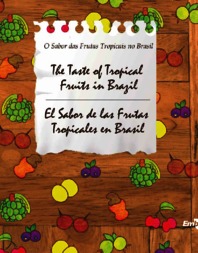Embrapa launches trilingual book on tropical fruit
Embrapa launches trilingual book on tropical fruit
Brazilian tropical fruits are not always appreciated by people of other nationalities, either because they are not part of consumer habits or because they are not easily found in foreign markets. And even when they are found, sometimes it is not easy to know how to consume them. In light of such context, a team from Embrapa Food Technology gathered some tropical fruit produced and consumed in Brazil in a book. Illustrated with photographs, the book brings information in Portuguese, English and Spanish, and it was launched at the Rio Sustainable Food Vision Fairs, during the Olympic Games in Rio de Janeiro.
Brazil has a large diversity of tropical fruit that consists of both native and exotic species ("exotic" in the sense that they were brought from other tropical environments and adapted to Brazilian ecosystems). "The pictures of fruit depicted in the book will be fundamental, as many fruits are completely unknown to many people", declares the Embrapa engineer Marcos Maia, the author of the photos. The content of the publication comprises general information on the fruit, focusing on consumption. "It is possible to consume some of them with their skin, as a whole fruit, with or without their cores or seeds, and with or without cutlery. And there are also those that can only be edible after processing, as juice, ice cream, or jam, for instance", describes the researcher Virgínia da Matta, one of the authors of the publication.
Fruits contain dietary fibers, antioxidants, vitamins, minerals (potassium, iron, manganese, magnesium, calcium, phosphorus, etc.) and other components that benefit health. Due to their nutritional and functional importance, there are countless permanent programs in the world to increase their consumption. Tropical fruit, from the Amazon region, from the Cerrado, the Atlantic Rainforest, or the Caatinga; "regardless of their origin, shape or size, the most important thing is to taste them. We hope that this small guide can provide readers with useful information that can help them enjoy the fantastic world of tropical fruit", concludes the researcher Regina Lago, coauthor of the publication.
To access the book, click here.
Rio Sustainable Food Vision Fairs
The book "The Taste of Tropical Fruits" was launched during the Rio Sustainable Food Vision Fairs, which took place between August 12 and August 14, 2016 at Largo do Machado and at Praça do Ó, in Rio de Janeiro. The publication drew the attention of both international and national visitors. On the occasion, Embrapa also showcased biofortified foods and research for the agroindustrial sector.
Aline Bastos (MTB 31.779/RJ)
Embrapa Food Technology
Press inquiries
agroindustria-de-alimentos.imprensa@embrapa.br
Phone number: 21 36229737
Further information on the topic
Citizen Attention Service (SAC)
www.embrapa.br/contact-us/sac/


